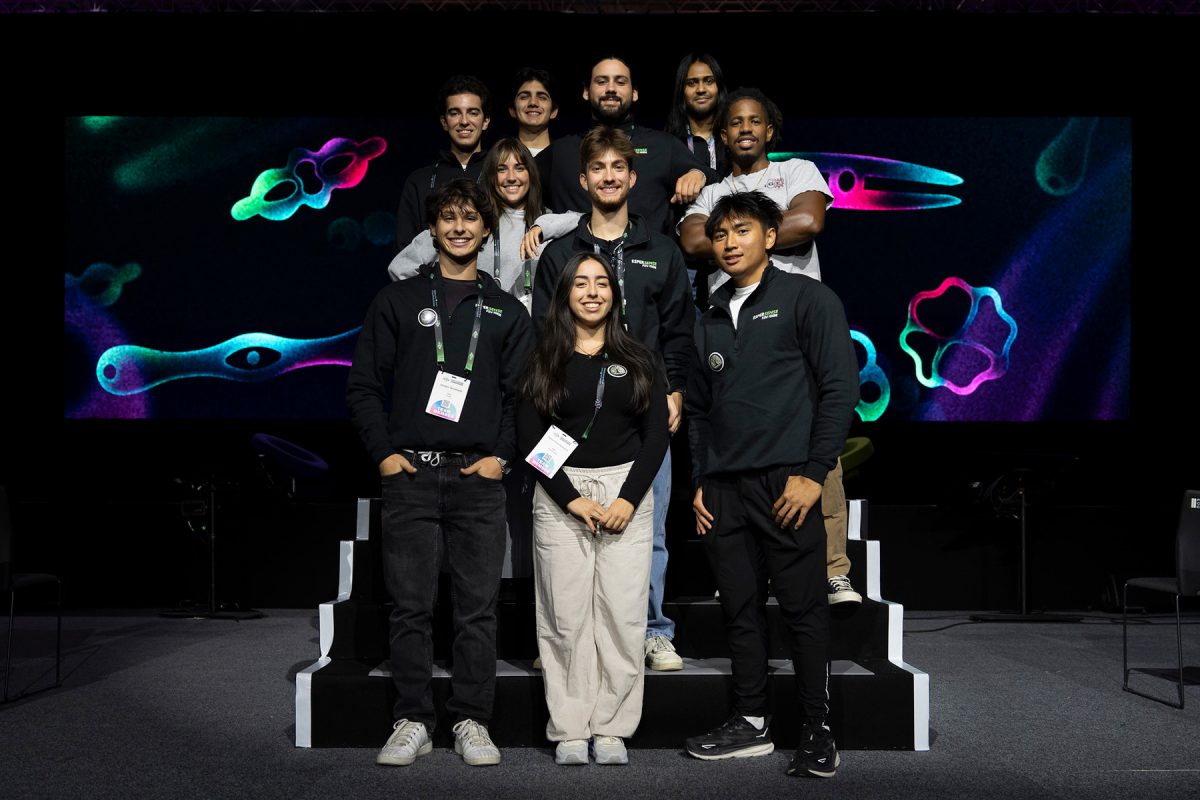
Florida State University’s International Genetically Engineered Machine (iGEM) team won a gold medal at an annual international research symposium promoting advancements in synthetic biology.
The team of 11 undergraduate students, from six different colleges, and two co-principal investigators won its second-ever gold medal at the iGEM 2024 Grand Jamboree, held in Paris, France, from Oct. 23-26.
The team’s work addressed a rare metabolic disorder called trimethylaminuria (TMAU), which causes a strong body odor released through sweat, breath and urine. They sought to create a breathalyzer device that could guide a patient’s treatment by monitoring the level of trimethylamine (TMA), the molecule that causes the odor, in the breath.
“Achieving this gold medal truly means everything to me and the team,” said team leader Ely Nieves. “We care deeply about the TMAU community and worked really hard to make forward progress on our project every single week. It was fantastic to see our work come together and place among the best teams in the world.”
This year’s work built on last year’s project focusing on treatment for the same condition, which earned the team a silver medal — the fourth in a row for the university’s team — at the 2023 Jamboree. Their work yielded promising results and continues as a project within FSU’s Institute for Pediatric Rare Diseases, a new institute that is expanding its reach alongside the larger FSU Health initiative.
“FSU is competing at the highest levels — we’re among the best teams in the world,” said Cesar A. Rodriguez, a co-principal investigator for the FSU iGEM team and research faculty at the FSU College of Medicine. “Our students are looking at the world. They’re finding these problems and then they’re using state-of-the-art technology to address the problem.”
TMAU is characterized by the body’s inability to oxidize TMA into a compound called odorless trimethylamine N-oxide (TMAO) in the liver. It’s estimated that one in 200,000 to 1 million individuals have the condition.

More than 400 teams from more than 45 countries presented their work to an international panel of over 400 judges at the four-day event in separate divisions for high school, undergraduate and graduate school students.
Other gold-medal winners included institutions such as Stanford University, Massachusetts Institute of Technology, University of Oxford, University of Cambridge, Indian Institute of Technology Bombay and Tsinghua University.
The 2024 research team worked to educate the public about their research and TMAU through the development of a project website and educational videos, and by hosting the second annual Biotechnology Expo at the Challenger Learning Center in July. The expo brought together bio-focused researchers from throughout the Tallahassee community to educate K-8 students.
“FSU’s success in the iGEM competition is a testament to the power of interdisciplinary research,” said David Montez, co-principal investigator and associate director of FSU’s Center for Undergraduate Research and Academic Engagement (CRE). “Students from a wide variety of disciplines develop new skills and apply them together toward a common goal. The students grew in their respective majors, all to serve a chronically underserved patient community.”
The iGEM program at FSU is a shared initiative of the College of Medicine and the Center for Undergraduate Research and Academic Engagement. The program accepts students from any major and is housed in the CRE, a unit of FSU’s Division of Undergraduate Studies.
For more information about the Center for Undergraduate Research and Academic Engagement, visit cre.fsu.edu.



